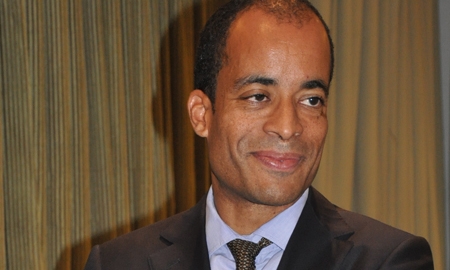A long history of unruly government regimes and outdated regulatory systems has, in the past, thwarted international investors and kept Nigeria’s oil and gas industry essentially undeveloped. Now, key players in these industries are fighting for better policies and improved infrastructure to encourage the country’s participation on the world market front.
“There are enormous opportunities, but you need to get through the initial concerns,” says Phillip Ihenacho, Executive Chairman of Seven Energy Limited. He is just one of the people working to improve Nigeria in the long term. His company operates the onshore Niger Delta, which is not only a major source for oil and gas in Nigeria, but is ranked among the largest in the world.
According to Mr Ihenacho, Seven Energy is the prototype for well-rounded businesses that want to develop upstream, midstream, and in gas transport, and will prove that this is a successful commercial strategy for other Nigerian enterprises. In the long run, they aim be the preferred vehicle for upstream investment, setting the standards for service and quality in the region.
In order to develop privately owned gas infrastructure, the company has formed many strategic partnerships with upstream and midstream players. Mr Ihenacho is grateful for policies such as the Local Content Act and the proposed Petroleum Industry Bill that have provided much needed structure and clarity in regulating such partnerships. The bills are “extremely helpful to anybody who operates in the industry,” he says.
The Local Content Act, passed in 2010, was a set of overdue policies providing valuable framework with regards to domestic policy in the energy sector. According to Mr Ihenacho, the Act “really supports the growth of the oil services sector,” and aims to ensure that international participants “use local talent as much as possible.” This should prevent the arbitrary exploitation of Nigerian resources and workers as the energy industry continues to grow.
Further defining the role of indigenous companies, and their relationship to international oil companies, is the long-awaited Petroleum Industry Bill, currently under revision by the National Assembly. Although some are sceptical about the changes that are sure to visibly impact the Nigerian economy, they will ultimately prove beneficial in providing security for those capitalists looking to make significant investments in the country.
Last year Seven Energy’s subsidiary Septa Energy completed a major gas pipeline project in partnership with the Akwa Ibom government. Aimed at boosting power generation and increased industrial ventures in the state, the project was hailed as marking the start of more highly successful public-private partnerships in the state.
The total cost of the project has been estimated at around $500 million (£312 million), with the state government kickstarting the scheme with a $33 million investment for the purchase of the gas to be produced. The government used the project’s launch to restate its commitment to the industrial development of the state. Officials observed that the pipeline laid a solid foundation for the high-quality infrastructure needed to drive the state’s progress.
With the changes to the economy over the past few years, Seven Energy has proven an exemplary business model for others in the Nigerian energy sector. Since its foundation in 2004, it has been a leading proponent for improving infrastructure and developing Nigeria’s domestic gas market. It has had so much success finding capital in the international market that it is now “one of the best capitalised independent oil and gas companies focused on Nigeria.”
About the company’s success, Mr Ihenacho explains, “We have tried to run our business as a transparent business with good corporate governance, so that it is easier for international investors to engage with us.” This strategy has helped the company in the last few years secure large debt facilities from both Standard Chartered Bank and Petrofac, which have pushed it into a very competitive position.

0 COMMENTS